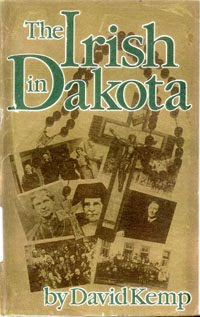
The world has been pretty hard on the Bible lately. Banned Books Week was just a month ago, a time when
the Bible figures prominently (on both sides of the argument). This past Saturday, pastor Marc Grizzard held up the King James Bible and declared it holy…
then tossed all other versions on to the book-burning pyre. It was "
a great success" according to their website. Recently in New Zealand, actor Sir Ian McKellen said in an interview that he was presented with a fork in the road: destroy the whole book, or just the offending parts? He chose the fractional destruction,
physically removing the parts of Leviticus that condemn homosexuality from the hotel-friendly Gideon's Bibles. Also in New Zealand (maybe there's something in the water these days), student Hanahiva Rose was asked by her art teacher to produce a controversial work of art.
Hanahiva created The Rose Bible, a torn and wrinkled copy of the Bible resembling a blooming flower. When it came time to show off her portfolio at the end of the year, however, the teacher excluded the
Rose Bible due to its controversial nature.
At its core, of course, the Bible is a book: pages, signatures, binding, page numbers and paragraphs, leather and gold leaf on the spine. Sir Ian's Gideons are some of the shoddiest books on the market, but they endure, despite page-ripping revisionists. Book lovers are often ready to condemn the cutting or destruction of a book,
despite the beauty of the art produced, but this urge for intactness isn't connected to censorship. There's something sacred about the structure of a book itself. A long time ago, a company I worked for was pitched a book-binding machine for doing proposals. The main selling point was that people may throw away some spiral- or comb-bound photocopies, but when it has a hard cover and a spine, it's a book, so it goes on the shelf. It was a strong point: nobody throws away a book.
The Bible, therefore, gets a double-dose of sacredness: its format and its function are all beyond the nature of an inert inanimate object. Of the events above, two of the three aren't exactly censorship. Sir Ian, sadly, is the promoter of censorship: his intent is to alter and remove offending content. While I agree with Ian's take on the offending passage, he is behaving no better than
the mystery Tennessee marker-wielder. The other two, however, do result in removal one or more books from circulation, but their intent is different: they are trying to make a
point, which is a First Amendment issue. The book-burning church's point, however, is to express their view that some books are unworthy of existing; they've crossed the Nazi line into expressing their intent to purge the world of certain thoughts, which may not be censorship directly, but their intent is clear and downright anti-intellectual. I sympathize with Sir Ian's intent, I refuse to accept the Bible-burning church's intent, but the poor New Zealand student whose art was excluded from her portfolio gets my utter support. Her controversial act was one of
creation, and artistic expression. Destroying a book for the purpose of art, despite making me cringe at the demise of a poor unsuspecting tome, is a worthy form of free-speech communication. Tearing out unacceptable pages and burning unacceptable editions are destructive acts, resulting in a lesser form than it started with. Hanahiva Rose, in the act of damaging the book, created art, so she deserves a break, no matter what book she used.
Labels: bible, censorship
 Grant Poetry: 1880
Grant Poetry: 1880


















